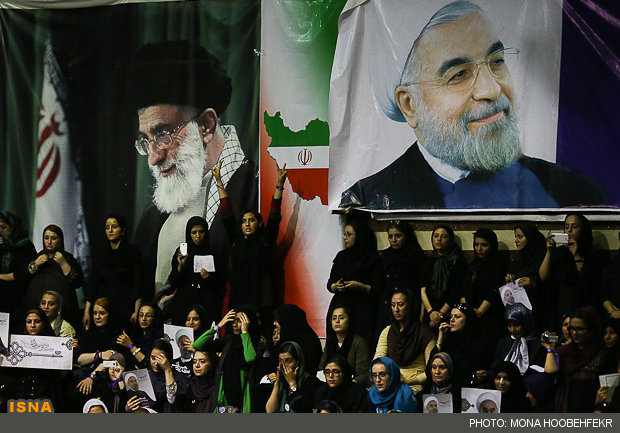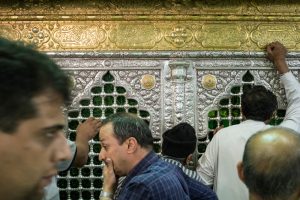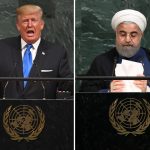by Ali Reza Eshraghi
In the current debate over the November 24 interim deal with Iran on its nuclear program, an important lesson from Politics 101 is neglected: state and regime are two conceptually different terms. But when it comes to Iran, US foreign policy has systematically been incompetent in grasping this distinction.
State refers to a sovereign political entity, which (at least in theory) is supposed to pursue the common good of its population. Regime, on the other hand, signifies an authoritarian form of governance and its ruling elites.
However, the rhetorical use of this word can be biased and highly politically motivated. In Western media one recurrently hears phrases such as “Iranian regime” and “Islamic regime” and not so much “Saudi regime,” despite Iran having significantly greater democratic features than the kingdom of Saudi Arabia.
Louis XIV of France once said: “L’Etat c’est moi,” I am the state. In the discourse over Iran’s nuclear program, it is often mistakenly assumed that the regime (along with the Supreme Leader Ayatollah Ali Khamenei) is the state. Subsequently, the nuclear conundrum is framed as only the problem of a regime that is greedily obsessed with its own survival, and not that of a state bound to consider long-term national interests.
If one sees a problem as a nail, the solution would be to look for a hammer. In this regard, it is not surprising that many members of the U.S. congress, assuming that more pressure will ultimately force capitulation by the regime, are pushing (though apparently defeated for the time being) for evermore sanctions against Iran.
And when it comes to negotiating with Iran, we see that the old Kremlinology of the Soviet era is ludicrously imitated, with moderate President Hassan Rouhani being compared to Mikhail Gorbachev. All the speculations are focused on how far the Iranian President could go in selling an accord to other players in the regime, and ultimately how much the whole regime, including Rouhani, can be trusted.
But what about the Iranian People? Some argue they would be happy for any deal as long as it alleviates the suffering caused by economic sanctions. It is even claimed that the democratic Iranian opposition is worried a nuclear agreement would empower the regime.
These assertions are inaccurate.
Two days after the historic phone conversation between Presidents Barack Hussein Obama and Hassan Rouhani, a rap song titled “Hassan & Hussein” went viral. The lyrics encouraged Iran-US reconciliation, but cautioned Rouhani: “Just remember when you are dancing [with Obama] / Not to give away the country two-handedly to [him] the foreigner.”
A recent poll by the Zogby Research Service shows 96% of Iranians (also the majority of Rouhani supporters) believe “maintaining the right to advance a nuclear program is worth the price being paid in economic sanctions and international isolation.”
Some Iranian opposition groups — though hateful of the regime — also believe that the nuclear dispute with the West should not be resolved at the price of damaging the pride and interests of the country.
For example Ardeshir Zahedi, the Shah’s last Ambassador to the US, in an interview with BBC Persian in July 2012 defended the nuclear program of a regime that has forced him into exile: “Iranians must maintain their patriotism. No matter who is in power, Iran is our country.”
Akbar Etemad, the founder of the Atomic Energy Organization during the Shah’s regime, even recommends that Iran withdraw from the Nuclear Non-Proliferation Treaty (NPT) and the International Atomic Energy Agency (IAEA) in order to keep its uranium enrichment program. This is the same position that some of the regime’s hardliners have insisted on.
Moreover, the Green Movement leaders (the largest democratic movement in Iran since the 1979 revolution, which the U.S. was sympathetic toward) are also against the Iranian regime signing a nuclear deal at the cost of disregarding national interests.
In October 2009, Iran’s top negotiator Saeed Jalili welcomed a deal in which Iran would send enriched uranium abroad. But Mir-Hossein Mousavi, the Green Movement leader who has been under house arrest for more than a thousand days, accused the regime of “making a deal over the Iranian nation’s long-term interests.” The Supreme Leader later rejected the deal.
Another severe comment was made in May 2010 when Iran signed a nuclear deal with the mediation of Brazil and Turkey (initially encouraged by President Obama but later rejected). This time Zahra Rahnavard, Mousavi’s wife who has also been under house arrest, admonished the agreement as “worse than the disgraceful” Gulistan Treaty.
Coincidentally, this October the Iranian media commemorated the 200th anniversary of the signing of the Treaty of Gulistan between the Iranian and Russian empires following the peace negotiations that were mediated by Great Britain.
Gulistan (1813) and its following Treaty of Turkmenchay (1828) in which Iran had to give up a great deal of territories and rights have deeply haunted the Iranian psyche.
In the Persian vocabulary “Turkmenchay” has become a metaphor for any humiliating compromise that jeopardizes national interests. In fact, after the recent Geneva agreement Iranians active on social media were wondering if it is another Turkmenchay or not. Luckily, the majority of Iranians don’t believe so although Abolhassan Banisadr, a prominent opposition figure who served as the first President of post-revolutionary Iran, has called the interim deal “worst than the Turkmenchay Treaty.”
To further understand the situation, let’s compare this metaphor to another one, which is often used in explaining the behavior of the regime:
In July 1988 after the eight-year Iran-Iraq war, the Supreme Leader of the time Ayatollah Rouhollah Khomeini reluctantly accepted UN Security Council Resolution 598 and the immediate ceasefire. He equated his decision (like Socrates) to drinking the poisonous chalice. Since then, pundits have participated in an incongruous scholastic dispute over what conditions would lead the current Supreme Leader Ayatollah Ali Khamenei to drink the proverbial poison and accept a nuclear deal like his predecessor.
Khomeini has been lambasted by many Iranians for prolonging the war with Iraq but no one has condemned his decision to accept the UN Security Council resolution as an act of giving away a piece of land or undermining national interests and rights.
The real problem for the current Iranian regime headed by Ayatollah Khamenei is not about drinking the poisonous chalice. It has to do with the signing of a nuclear Turkmenchay. Realpolitik suggests that the regime should not be trapped between the Scylla of ever-growing sanctions and the Charybdis of a humiliating unilateral concession.
The US President has apparently grasped this notion. Speaking at the Brookings Institution’s Saban Forum last Saturday, Obama rejected that Iran would surrender under more sanctions and military threats: “I think [this notion] does not reflect an honest understanding of the Iranian people or the Iranian regime.”
When debating the recent Geneva deal and the prospect of a comprehensive agreement, US foreign policy makers, especially Congress, need to distinguish between Iran as a regime and Iran as a state. “What’s the difference?” they might ask.
Yet, as the literary critic Paul De Man once brilliantly explained, “What’s the difference” in some situations could be an answer rather than a question that indicates the responder does not “give a damn what the difference is.” This would be an imprudent answer from the US Congress.
Photo Credit: ISNA/Mehdi Ghasemi






This is a game going on since 12 years as ISRAELIS DEMAND TO PUNISH iRAN I:E: WAR The problem is that Iran is a powerful state with good finances and nationalistsa. Israel knows will be difficult to destroy Iran a huge country with different places and rocky mountains. They will continue to press hard and we are being draged in this war.
Pakistan needs gas but Americans oppose this is real America to destroy pakistan economically. I the long run America will be biggest looser in side and outside world. Europe will have to abandon America for their economical wellfare and needs no war.
We will have to wait and see at least coming ten years. The best option for Iran will be to test their nukes before it is too late.